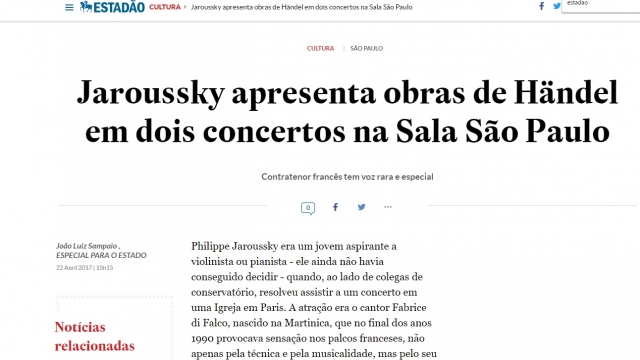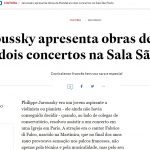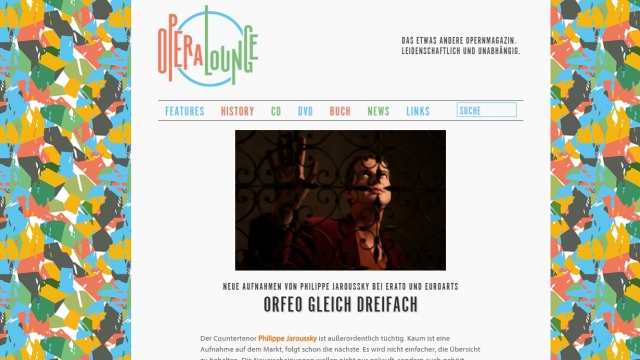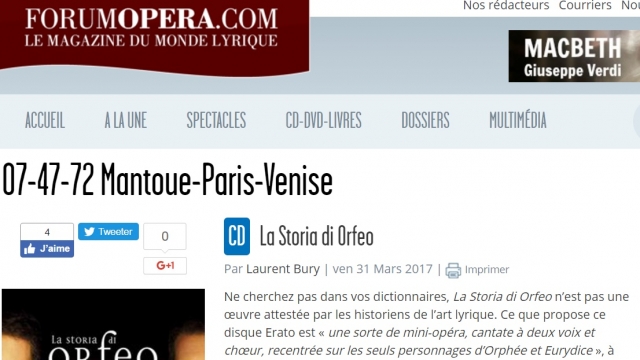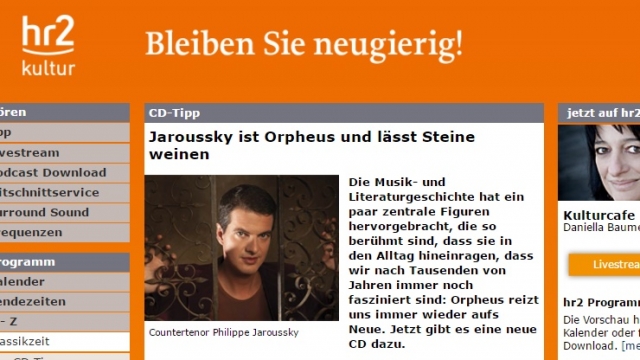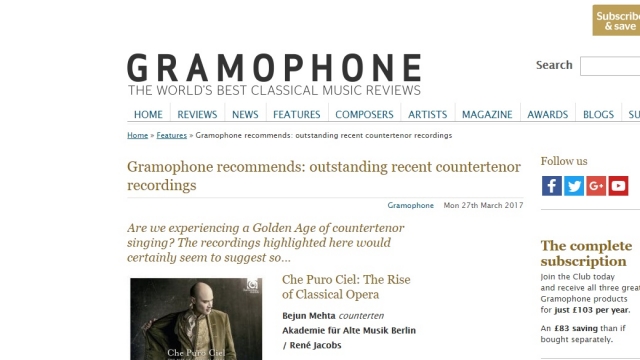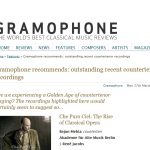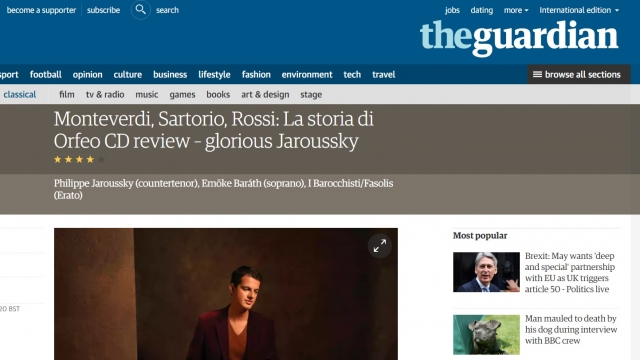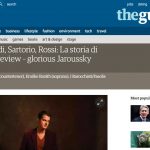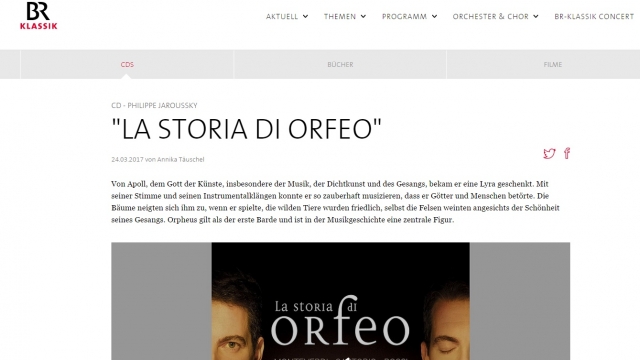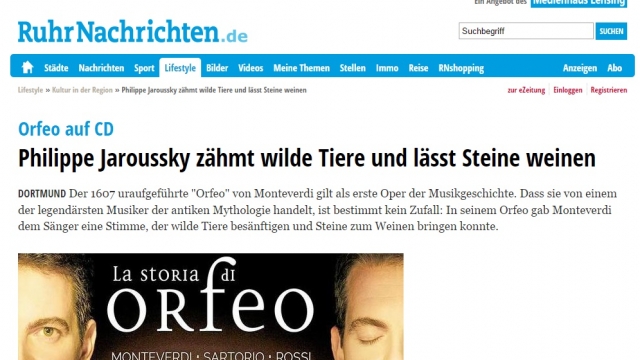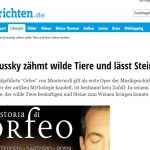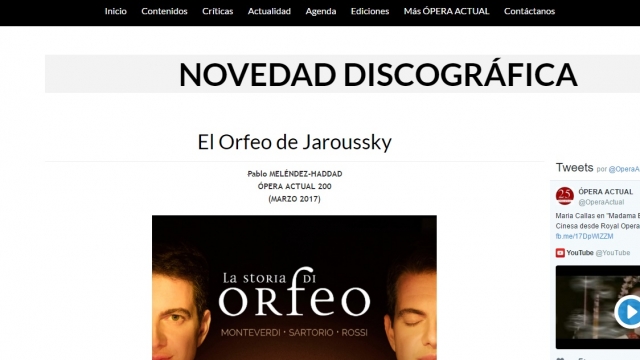2017-04-22, Cultura Estadão, by João Luiz Sampaio
“Eu acho sinceramente que a ideia de passar horas estudando, debruçado sobre um instrumento, nunca me agradou. Havia sempre algo de superficial, e esse, claro, era um sentimento extremamente pessoal, de forma alguma gostaria de generalizá-lo. A voz, no entanto, é um instrumento interno, está dentro do nosso corpo. A técnica, nesse sentido, tem a ver com as nossas sensações, com a maneira como nos sentimos. A técnica, no canto, não pode existir longe da expressão. Foi então que encontrei de fato o sentido de minha relação com a música”, conta Jaroussky.
Source/Read more: [x]

